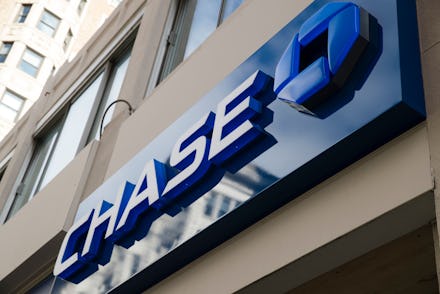The White House's plan to rescue small businesses isn't "feasible," lenders say

A centerpiece of the massive $2 trillion dollar coronavirus stimulus package passed last week was the $350 billion small business lending program that it established. The premise was that, in lieu of closing their doors or laying off workers, businesses could get low-interest loans — and, if they used the money to keep their employees on the payroll without laying anyone off, their loans would be forgiven. In short, the money was intended to function more like a grant than a loan, and if effective could keep millions of Americans from losing their jobs and prevent scores of neighborhood businesses from going under.
The program was meant to go into effect Friday. Unfortunately, as with so many other things that the Trump administration has promised as in the course of its slipshod coronavirus response, the execution appears to have been badly bungled.
According to a report in Politico on Thursday, banks are cautioning that the White House has not provided them with the guidelines they need to begin lending by Friday. The banks, which are expecting applications from millions of businesses, claim that the Friday deadline is especially unrealistic given the conditions that Treasury Secretary Steven Mnuchin has imposed on them for providing these loans — including a short deadline and onerous verification requirements — and say that the program could be delayed for weeks or even longer.
“Banks are ready and willing to lend, but they need clear rules of the road and a streamlined process to be able to get funding into the hands of small business owners in the coming days,” said Greg Baer, the president and CEO of the Bank Policy Institute, a group that represents lenders, in an interview with Politico.
The need for the lending program to be successful was underlined by this week’s monster 6.6 million new unemployment claims. That follows last week’s then-record of 3.3 million jobless claims. In total, the last two weeks have seen nearly 10 million Americans lose their jobs, as coronavirus continues to wreak havoc on the U.S. economy. Without swift and effective lending, these numbers will only continue to balloon.
"This would be an unacceptable lost opportunity at a time when we can least afford it."
An anonymous White House official told Politico that the administration is working as fast as it can to make sure the lending program can be instituted effectively. “Treasury and [the Small Business Administration], coordinating closely with the White House, are working at record speed to implement the Paycheck Protection Program," the official said. "SBA’s top priority is making sure these programs are up and running as fast as possible to provide relief to American workers and businesses.”
The problems stem from the need to verify the information provided by the would-be borrowers before providing them with money. The rules established by the Trump administration state that banks have to verify whether the companies applying for loans were active as of Feb. 15, and additionally determine whether they had actually paid employees. This vetting could take weeks, the banks claim, leading to a system where companies with pre-existing relationships with the banks could receive loans more quickly because they are already trusted customers, whereas newcomers would be stuck with long delays.
Obviously it’s important that there be some regulation place so the government isn’t doling out millions to sham businesses. But the lenders said that they would prefer to only have to confirm that borrowers have filled out their loan application according to the instructions, and then pass along the information to the SBA.
"Banks are working to get money out the door as quickly as possible," a spokesperson for the Consumer Bankers Association told Politico. "While the application has been significantly condensed, the verification process the government is requiring will likely take more time than many had originally hoped. Hopefully between now and Friday, we can further optimize the process.” The bankers group called for the onus of verifying the information to be placed on the government, rather than on the banks, so that they could dispense the money in a timely manner. Since the government is on the hook for the money, the banks argue, it should be the one verifying the loan information.
The verification issue isn’t the only thing bankers are concerned about. On Wednesday, the Independent Community Bankers of America sent a letter to the Treasury Department claiming that the 0.5% interest rate for the loans that the administration called for in the stimulus bill was too low. For many banks, the letter claimed, "it will not be economic or feasible to participate in the program."
If their concerns are not addressed, the bankers claim, they will not participate in the lending stimulus program. Needless to say, banks pulling out of the federal government’s big loan program will be disastrous for the small businesses that desperately need cash, like neighborhood bars and mom-and-pop shops.
"Taking all of the above concerns into consideration, many banks have already indicated that they will not be able to use the program under the current terms," the letter continued. "Others will only use it for current customers, greatly limiting the purpose and potential of the program. This would be an unacceptable lost opportunity at a time when we can least afford it."